- 19,563
- 6,838
- Joined
- Apr 27, 2009
Dumb.1. King Felix
2. Matt Kemp
3. Robby Canyes
4. Puig
5. Carlos Gomez
6. Russell Wilson
7. Stanton
8. Trout
9. Milton Bradley
10. Edwin Encarnacion
why you mad though?

Follow along with the video below to see how to install our site as a web app on your home screen.

Note: this_feature_currently_requires_accessing_site_using_safari
Dumb.1. King Felix
2. Matt Kemp
3. Robby Canyes
4. Puig
5. Carlos Gomez
6. Russell Wilson
7. Stanton
8. Trout
9. Milton Bradley
10. Edwin Encarnacion

I like Trout, just not one of my favorites haha. Not even my favorite Angel actually, Howie KendrickTrout die????


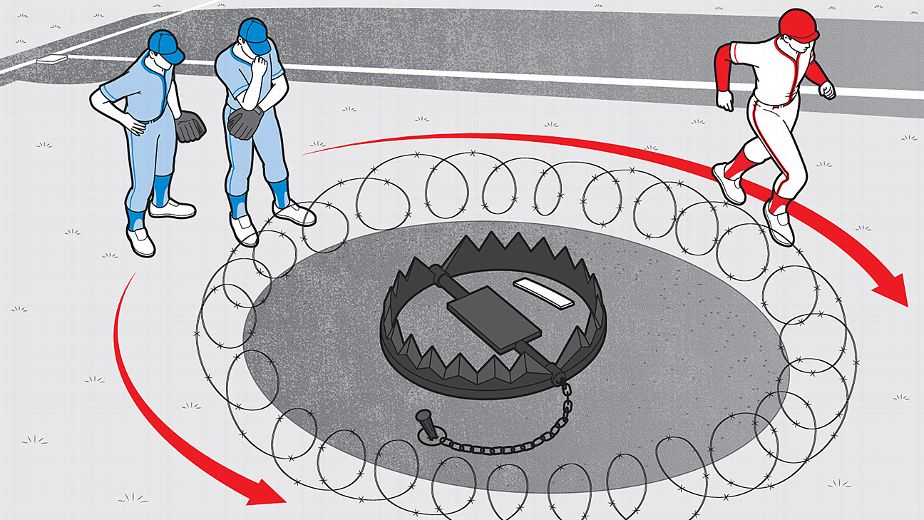
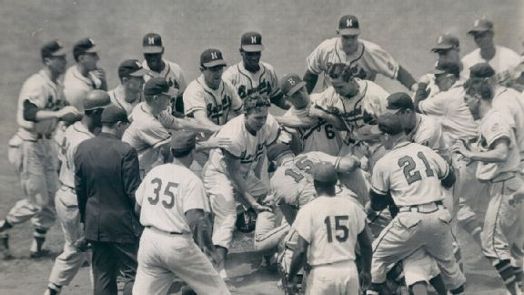
Cardinals pitcher Adam Wainwright shares his thoughts on some unwritten rules of the game, including how a batter should compose himself after a home run, when a pitcher is allowed to hit a guy, and when it's not OK to steal a base.
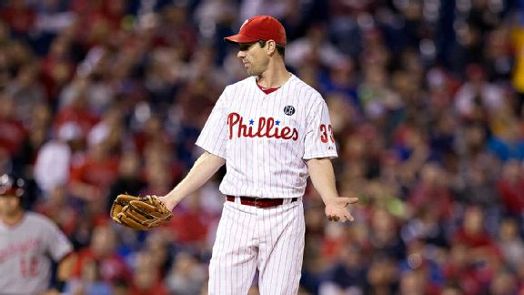
Wilson says, "I always stay on the mound after a pitch, so it would be pretty awkward if a hitter ran across it while I was still standing on it. It's not a sanctimonious thing with me. Alex has had some instances where he's done some stuff -- like, a few years ago, yelling at the Toronto third baseman [Howie Clark] while he was trying to catch a popup. That's just lame."
[h4]THE TOO-HEAVY EYE-BLACK APPLICATOR[/h4]
Michael Morse is the one with the compact and the makeup here, but he's hardly alone in MLB.
Rob Carr/Getty Images
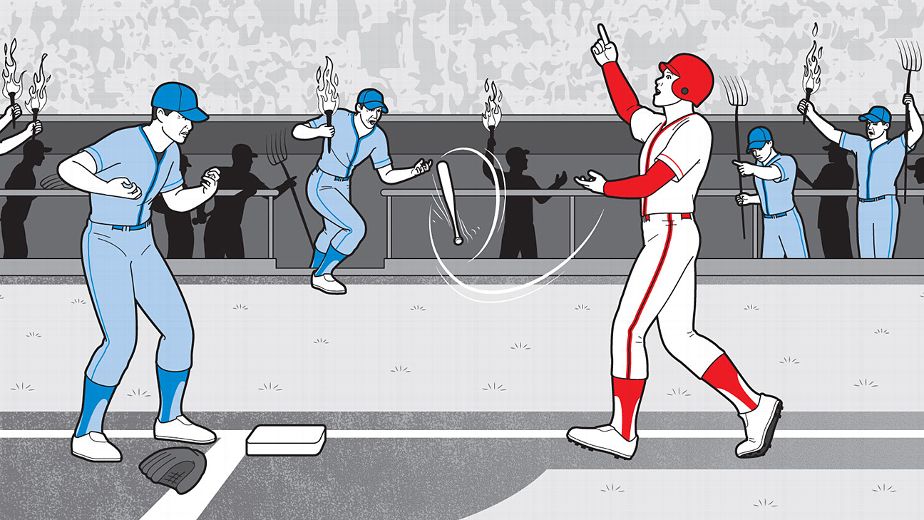
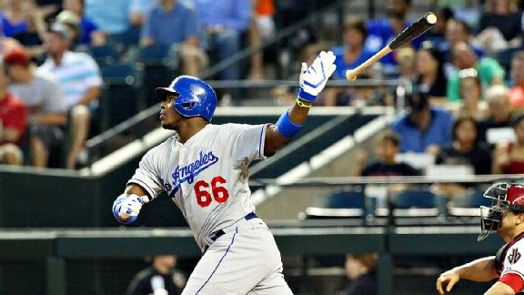
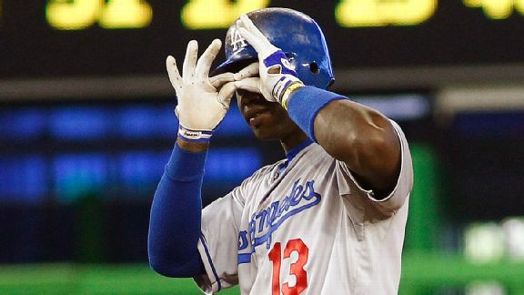
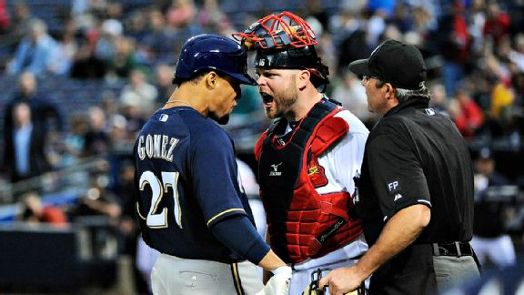
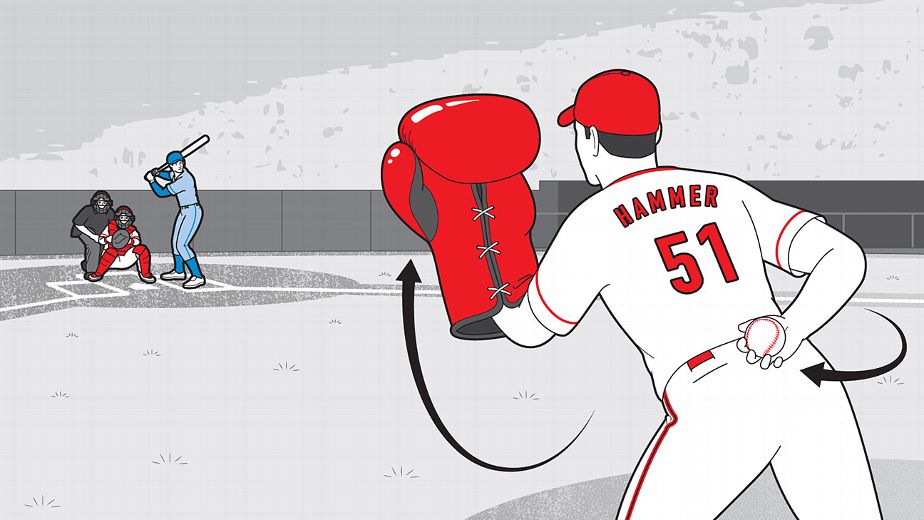
[h4]THE RANDY JOHNSON IMPACT …[/h4]
… as experienced by the Brewers' Geoff Jenkins.
Jonathan Daniel/Getty Images
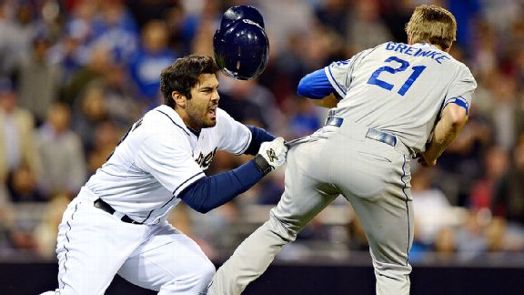
[h4]THE NICK MARKAKIS GRUDGE[/h4]
The O's still owe CC Sabathia for the broken wrist that cost Markakis the last month and the playoffs in 2012.
AP Photo/Nick Wass
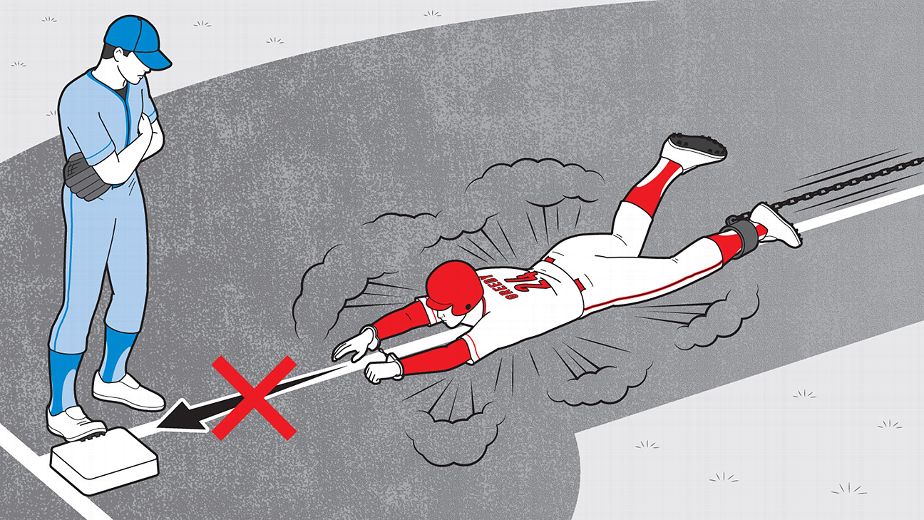
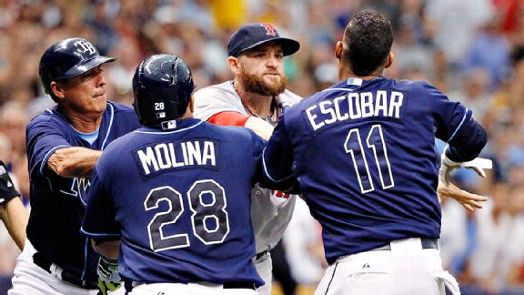
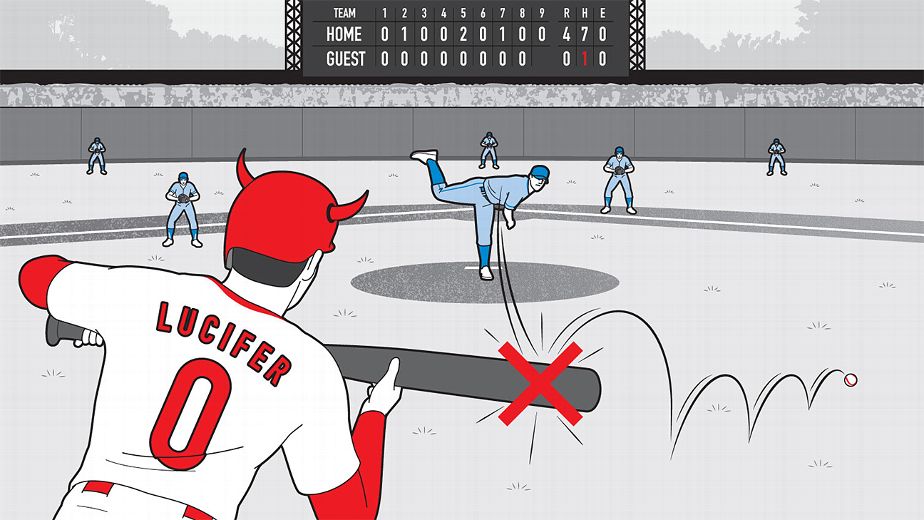
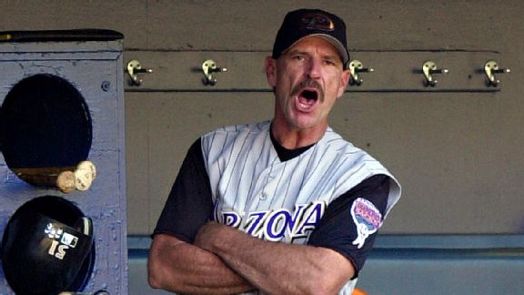
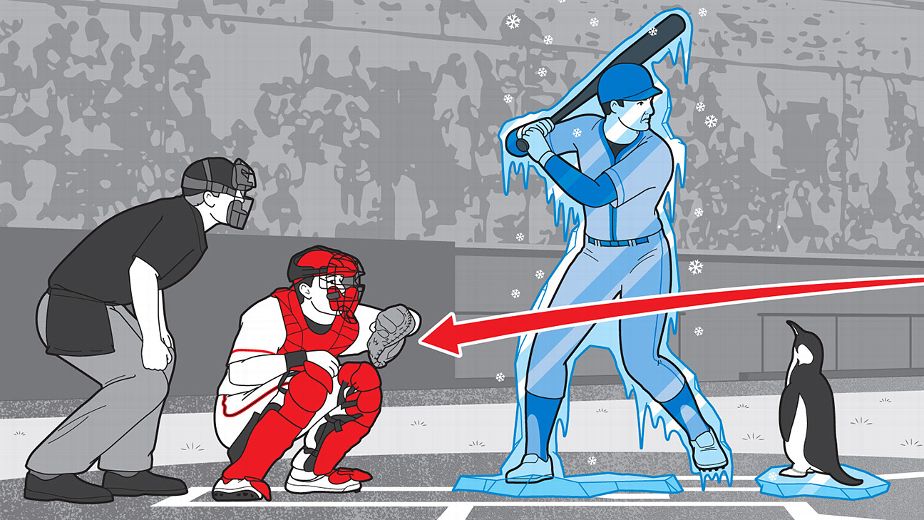
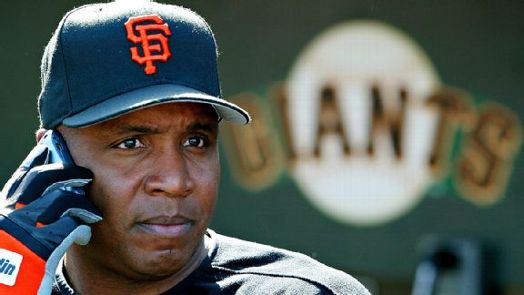
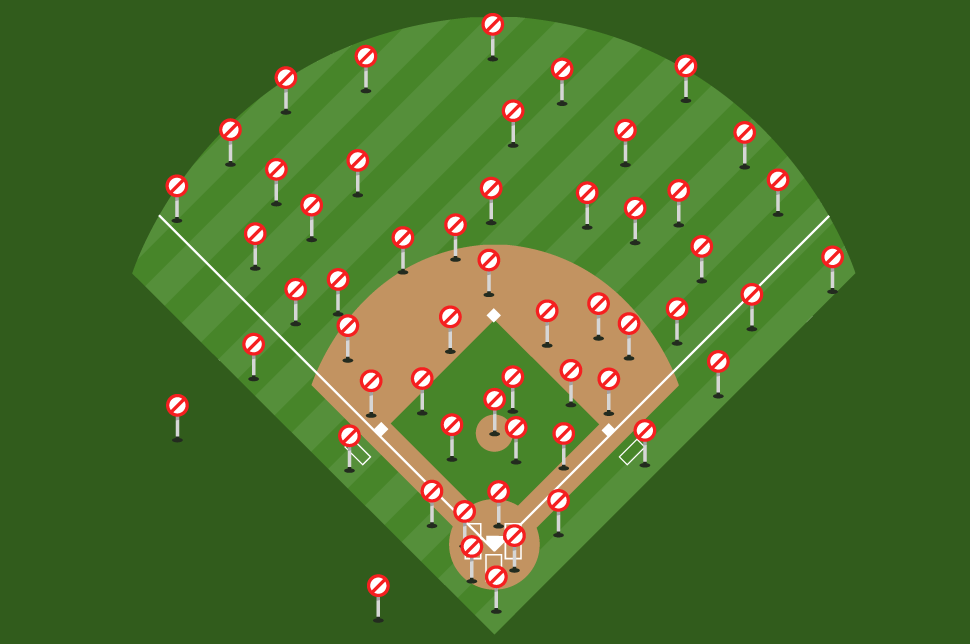
Yes, if you go to the parking lot to fight a guy for pimping a homer, that's a sign of a man who respects the game. Whoops, no, sorry, that's the sign of an idiot and a criminal. Taking a player to the parking lot won't necessarily get you suspended from baseball, it'll just get you arrested—which, in this case, is apparently the lesser of two evils."So many rules and regulations have prevented the players from policing our game. Now, a young guy hits a home run, he cruises around the bases, and then you hit him with a pitch to teach him a lesson and you get suspended six games. Is it worth it to make a point? No. The rules have been altered. You have a better opportunity to go out in the parking lot and fight a guy after a game than throwing at him. If you fight in the parking lot, you might not get suspended. But if you hit a guy, you are going to get suspended."
The hell? Putting aside that I have no idea how you came to the conclusion I was "mad" with a one word post, what on earth would I have to be "mad" about?why you mad though?Dumb.1. King Felix
2. Matt Kemp
3. Robby Canyes
4. Puig
5. Carlos Gomez
6. Russell Wilson
7. Stanton
8. Trout
9. Milton Bradley
10. Edwin Encarnacion

Dumb.1. King Felix
2. Matt Kemp
3. Robby Canyes
4. Puig
5. Carlos Gomez
6. Russell Wilson
7. Stanton
8. Trout
9. Milton Bradley
10. Edwin Encarnacion
why you mad though?
The hell? Putting aside that I have no idea how you came to the conclusion I was "mad" with a one word post, what on earth would I have to be "mad" about?
Grow up.

Like the 2nd article talks aboutI read those the other dayI love baseball but you wanna talk about the biggest bunch of whining pansies walking the face of the Earth, look no further than the diamond.

Your (note the proper use of the word) 6th favorite player IN THE SHOW is a football player who never made it further than Single-A baseball, and its ME that has trouble hiding my emotions?your terrible at hiding your emotions amigo.Dumb.1. King Felix
2. Matt Kemp
3. Robby Canyes
4. Puig
5. Carlos Gomez
6. Russell Wilson
7. Stanton
8. Trout
9. Milton Bradley
10. Edwin Encarnacion
why you mad though?
The hell? Putting aside that I have no idea how you came to the conclusion I was "mad" with a one word post, what on earth would I have to be "mad" about?
Grow up.
Your (note the proper use of the word) 6th favorite player IN THE SHOW is a football player who never made it further than Single-A baseball, and its ME that has trouble hiding my emotions?
Got it.
Your (note the proper use of the word) 6th favorite player IN THE SHOW is a football player who never made it further than Single-A baseball, and its ME that has trouble hiding my emotions?
Dumb.1. King Felix
2. Matt Kemp
3. Robby Canyes
4. Puig
5. Carlos Gomez
6. Russell Wilson
7. Stanton
8. Trout
9. Milton Bradley
10. Edwin Encarnacion
why you mad though?
The hell? Putting aside that I have no idea how you came to the conclusion I was "mad" with a one word post, what on earth would I have to be "mad" about?
Grow up.
your terrible at hiding your emotions amigo.
Got it.


I don't think you've ever been allowed to select pitchers. I've always found that odd too.What's up with this HR Derby voting on MLB.com? Cruz, Abreu and Encarnacion aren't even on the ballot and they only allow one write-in. Stupid.
And I'm pretty sure I filled out all my All-Star voting ballots without selecting one pitcher. I don't know how I did that, but I don't even remember being given the options. Also stupid. This one's on me though.
